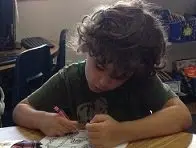 A problem is a difficulty or obstacle that complicates the achievement of an objective. Learning , meanwhile, is the process carried out to acquire knowledge or develop skills .
A problem is a difficulty or obstacle that complicates the achievement of an objective. Learning , meanwhile, is the process carried out to acquire knowledge or develop skills .
Learning problems appear when an individual has problems when incorporating knowledge or optimizing a practice . These are disorders that can occur for different reasons and that manifest in different ways.
Among the types of learning problems, obstacles appear in reading , understanding , expressing oneself or paying attention . It is common for these impediments to be detected in childhood and for the same child to suffer from more than one learning problem.
According to specialists, learning problems are not linked to intelligence , but are associated with brain structures and how the brain manages to develop information processing. Many times the causes are genetic , although these problems can also be acquired for other reasons, such as exposure to certain toxins.
Agraphia or dysgraphia (difficulties writing), dyslexia (difficulties reading) and dyscalculia (difficulties performing mathematical calculations) are among the learning problems. Other obstacles, such as attention deficit hyperactivity disorder and hearing and memory disabilities, are also often considered part of learning problems, although they transcend them.
The treatment of learning problems requires the intervention of experts in special education . It is common for children to be offered everything from technological resources to alternative teaching methods to minimize shortcomings and enhance their strengths.
Like any problem, learning problems have an origin that can be attacked to prevent its development and, consequently, the need to correct it in the future. In this particular case, we must distinguish those that occur due to biological reasons from those that occur psychologically. While the former may respond to health conditions or diseases of birth or unpredictable onset, the others usually arise in response to poor parenting .
 Our elders are responsible for teaching us the first concepts, but it is not enough to pass on their knowledge to us; they must instill in us a taste for learning. This aspect is the most important so that we can continue developing our intellect once we become independent, since it becomes an almost natural impulse that leads us to genuinely feel the desire to enrich ourselves.
Our elders are responsible for teaching us the first concepts, but it is not enough to pass on their knowledge to us; they must instill in us a taste for learning. This aspect is the most important so that we can continue developing our intellect once we become independent, since it becomes an almost natural impulse that leads us to genuinely feel the desire to enrich ourselves.
If parenting does not include this incentive, the child may consider school to be an unnecessary burden, an obstacle that must be overcome in the most astute way possible to achieve "his freedom." This leads to a waste of years and money which then results in poor preparation to cope with adult life. If they do not teach us how to learn, if they do not give us the pleasure of incorporating new concepts and skills, we will have learning problems because we will have developed a natural rejection of this process.
Experts approach patients with learning problems by studying their roots and proposing the most appropriate stimuli. Needless to say, imposition is useless, since it is precisely this strategy that generates such a large failure rate in traditional education. On the contrary, the objective should be to generate that need to learn that the patient does not have, so that once the treatment is over they can continue growing without help.
Lack of self-esteem is one of the common factors in most cases, although it is not always noticeable at first glance. Even in people with apparently arrogant attitudes there may be a fear of being considered inferior. Breaking through a barrier like this can be a great challenge for a professional, even more so than a case of inattention .
